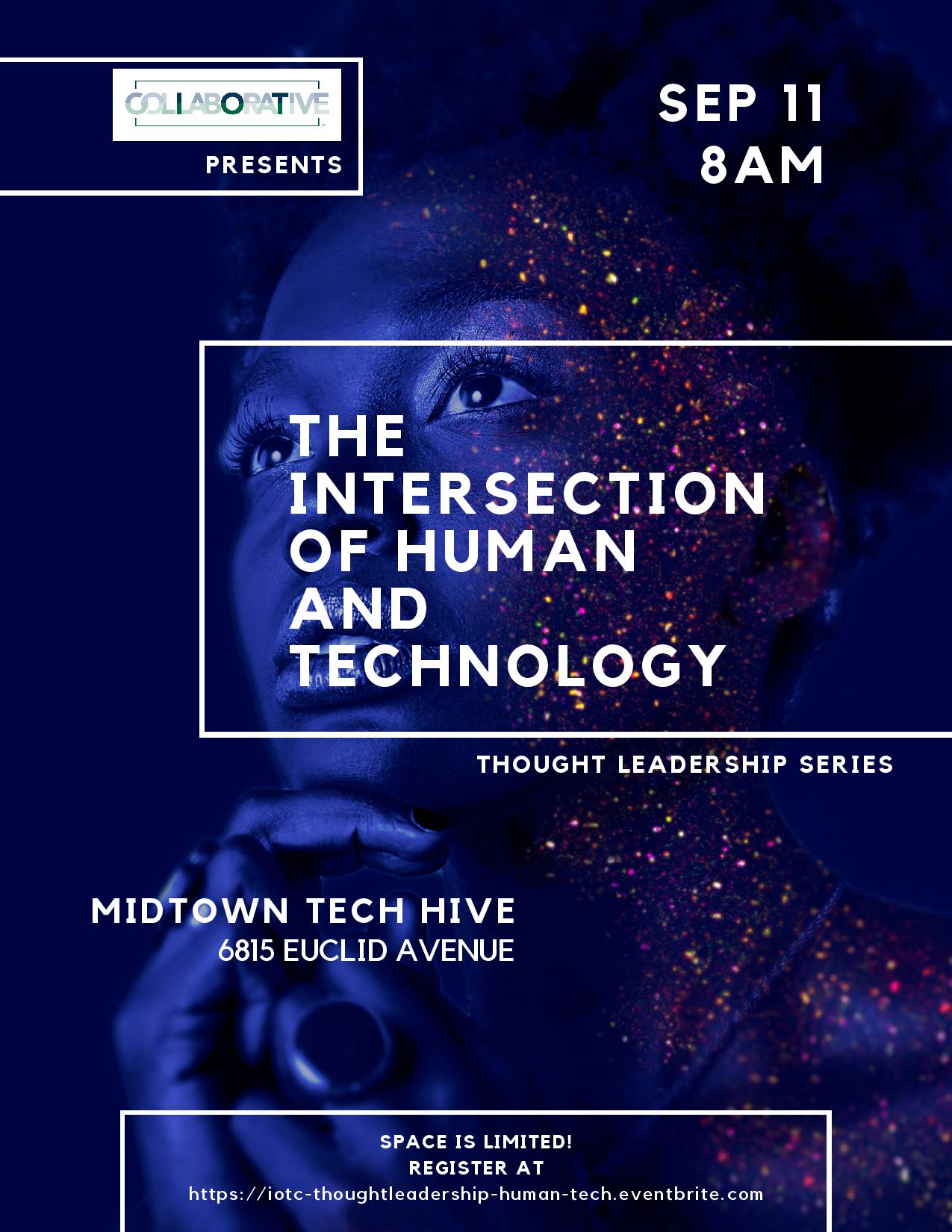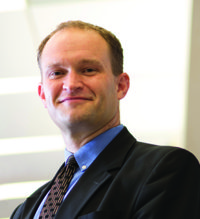
Human – Tech Symbiosis
What is it? How should we approach it? What are the ethical and social issues raised by neural-digital interfaces?
Join us on September 11, 2019 at 8:00 am for a discussion led by Case Western Reserve University’s Dr. Suzanne Rivera and Dr. Dustin Tyler, and Cleveland State Univerity’s Dr. Nicholas Zingale and Dr. Eric Schearer.
The event is free, but registration is required.
About the Speakers
 Suzanne M. Rivera, Ph.D.
Suzanne M. Rivera, Ph.D.
Vice President for Research and Technology Management, Case Western Reserve University
Associate Professor of Bioethics, Case Western Reserve University, School of Medicine
Dr. Rivera is a national leader in research ethics who specializes in human research regulation and science policy. She has served on the DHHS Secretary’s Advisory Committee on Human Research Protections and the EPA’s Human Studies Advisory Board. Her book Specimen Science was published by MIT press in 2017.
“Ethical Considerations in Developing, Testing, and Deploying Direct Human-Technology Connections”
In the field of Bioethics, there is an established tradition of applying an “ELSI” approach to thinking about science, medicine, and technology. ELSI stands for ethical, legal, and social implications. Although it could be possible to develop, test, and deploy human-machine connections without a deep ELSI approach, failing to deeply examine ELSI considerations leads to products that don’t work for the intended audiences and products that create serious adverse unintended consequences.
 Nicholas Zingale, Ph.D.
Nicholas Zingale, Ph.D.
Associate Professor, Cleveland State University, Maxine Goodman Levin College of Urban Affairs
Visiting Professor, Case Western Reserve University, Department of Electrical Engineering and Computer Science
Dr. Zingale has over 25 years of academic and professional experience and teaches courses in public administration, organizational theory, and logic of inquiry. He serves as a senior executive steering committee member for the northeast Ohio Internet of Things Collaborative, a research associate in the Human Fusions Initiative and co-directs the Institute of Applied Phenomenology in Science and Technology. He is also a senior executive fellow from the Harvard University Kennedy School of Government. His research is at the intersection of phenomenology, organizational theory and practice, and administrative governance from which he has published over 80 editorial, technical and academic articles. He is currently working on a book about human experiences in the digital age.
“Smart and Sensible Approaches in a Digital Age”
Using examples from public sector technology projects, Dr. Zingale will be discussing the similarities and differences between monodisciplinary, multi/inter disciplinary, and transdisciplinary approaches when considering the development and deployment of new and innovative technologies.
 Eric Schearer, Ph.D.
Eric Schearer, Ph.D.
Cleveland State University
Eric Schearer is Assistant Professor of Mechanical Engineering and the Director of the Center for Human-Machine Systems at Cleveland State University. His research focus is on developing control strategies for wearable robotic and neurprosthetic systems to restore reaching and grasping function to people with high spinal cord injuries. He developed and teaches a course sequence called Disability, Empathy, and Technology which takes a holistic view of training professionals to develop technologies for people with disabilities.
 Dustin Tyler, Ph.D.
Dustin Tyler, Ph.D.
Case Western Reserve University
Dustin J. Tyler, Ph.D. is the Kent H. Smith Professor II in Biomedical Engineering at Case Western Reserve University in Cleveland, OH and Director of the Human Fusions Initiative. He is an expert in the science and technology of directly communicating with the human nervous system to create a symbiotic relationship between humans and technology. He has a secondary appointment as a principal investigator at the Louis-Stokes Cleveland Department of Veterans’ Affairs Medical Center (LSCDVAMC) and is the Associate Director of the Advanced Platform for Technology Center, a Department of Veteran’s Affairs Rehabilitation Research & Development National Center. Dr. Tyler has over 25 years of academic, entrepreneurial, and corporate experience advancing neuromodulation technology. He has extensive publications (more than 700 citations annually), patents, and popular media coverage of his work.
Dr. Tyler’s expertise and interests include directly connecting humans and technology over neural system to improve human performance and capability. Dr. Tyler received his Bachelors Degree in Electrical Engineering from Michigan Technological University in Houghton, Michigan, USA in 1992 and his PhD in Biomedical Engineering from Case Western Reserve University in Cleveland, Ohio, USA in 1999.


